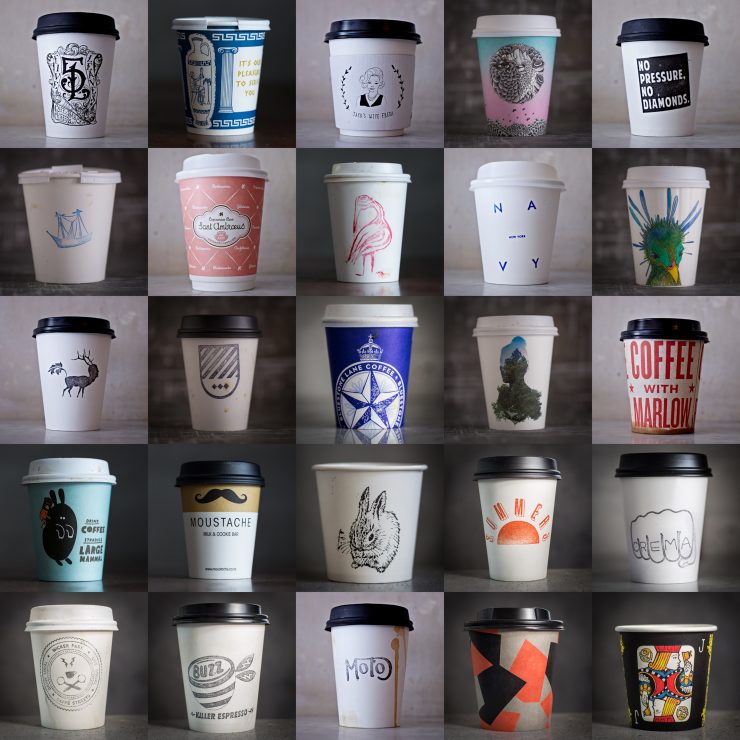
For coffee shops, to-go cups have become an essential part of the branding toolkit. What better way to spread the word than through customers who are taking your product out onto the streets? Over the past few years, cafes have stepped up their coffee-cup game, and there’s one man who has been committed to documenting it: Henry Hargreaves.
Hargreaves runs the popular Instagram feed @coffeecupsoftheworld, which collects cool-looking cups from all the cafes you may never visit. CoffeeCupsOfTheWorld is not only an exploration of coffee branding but graphic design and art. “I think cups are a really pretty thing, the little footnote in the food-porn world,” says Hargreaves. “So often I think the cups are more engaging than the picture of the coffee that [is] in it.”
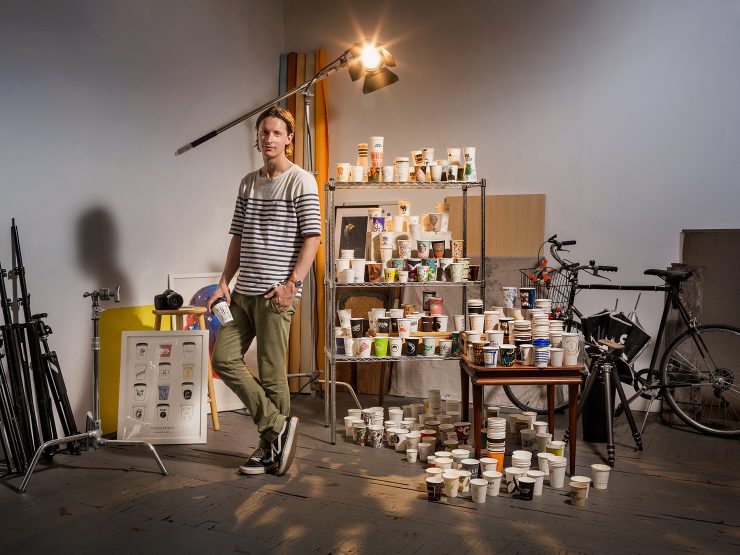
What started as a way to document the cups Hargreaves found while traveling is today an online space that attracts coffee lovers and their cup-photo submissions from every corner of the world. “I wanted to show places that aren’t on my regular travel itinerary, places like Asia, the Midwest, continental Europe, and South America, so it’s been really cool to have the community share those things and expand it,” says Hargreaves.
Originally from New Zealand, Hargreaves spends his days (when he’s not traveling and shooting his favorite coffee cups, that is) in Brooklyn as a photographer, mostly in the food space. We caught up with Hargreaves to talk all things cups, design, and inspiration.
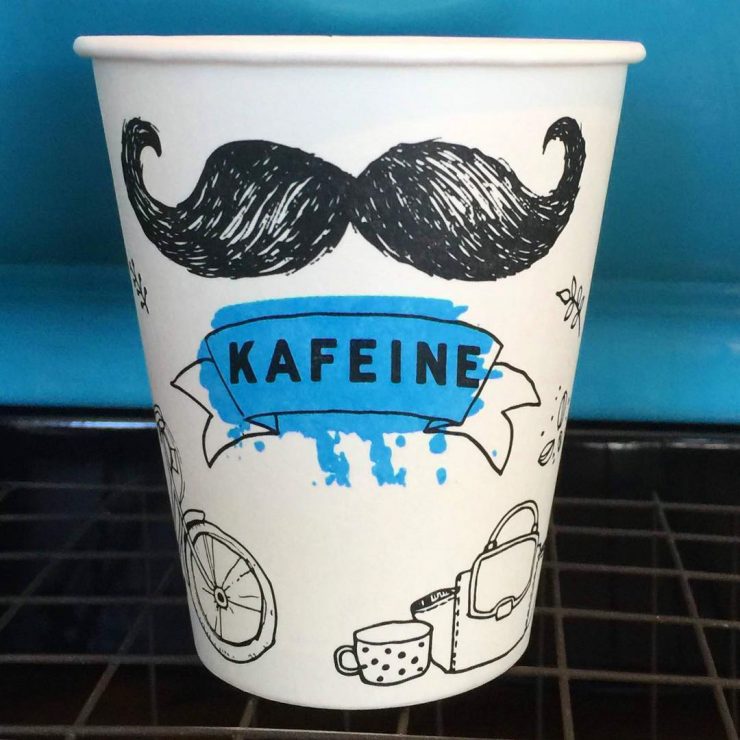
How did @coffeecupsoftheworld get started and how has it evolved since then?
I am a big coffee drinker and I love getting my coffee to go, the ritual of getting a cup and carrying it around. When I moved to America, to-go coffee seemed like such a way of life here. You can get a drip coffee for a dollar, it lasts you 15 minutes, and you walk around with it. But no one was really doing anything that interesting with coffee cups. I mean, you had the Greek [design] cup, that iconic thing, but no one was putting their own brand on them. I noticed a few places starting to stamp their cups and thought this was really cool—the cup was such an extension of the experience of the cafe. I’d also walk around with a cup with a really nice stamp on it and it would capture people’s eyes, so it became a bit of advertising for the cafe and made me feel like I was getting my money’s worth because I was getting this piece of art. And, because I felt I had this beautiful thing, I didn’t want to throw it away, so I became conscious of waste as well.
Essentially, I just wanted to start to document places that were doing good things with their cups. I travel a lot, and going cafe to cafe is the narrative that I use to explore a city and the coffee cup is the souvenir that I take from these places. So I started to photograph them and post them. [Then] I started getting submissions, so it has gone from something purely based on my travels to being a community that I curate.
Would you say you have an obsession with to-go coffee cups?
When I travel, I am always on the lookout. You should see my collection, it’s several boxes full of cups, probably 400 or 500. I think collecting is a healthy habit to have. My grandmother used to tell me to be suspicious of people who didn’t collect anything.
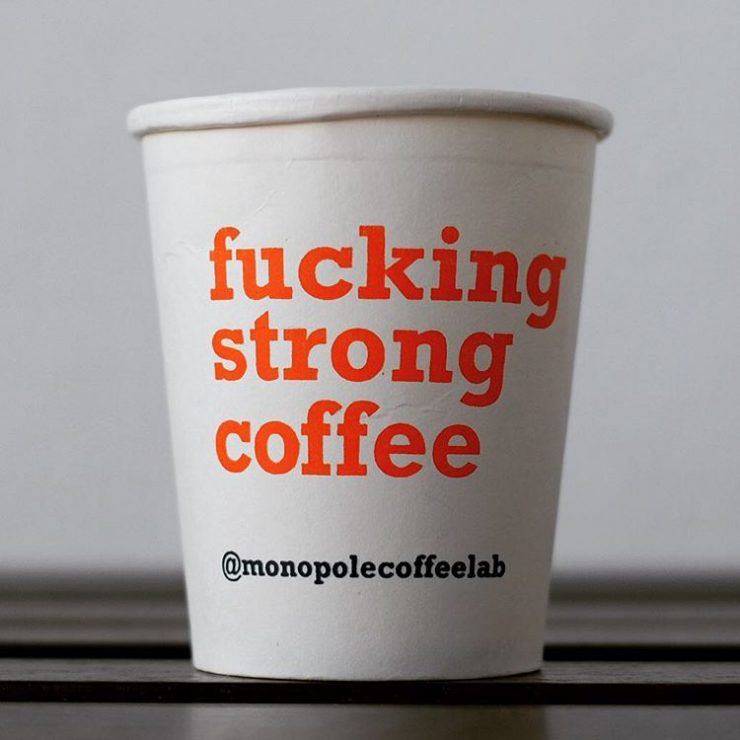
How have you seen cups evolve over the past few years? Do you feel like cafes are stepping up their game in terms of branding and design?
When I started it was a handful of places in New York that had cool cups; now pretty much every cafe has their own cup, so people are definitely more conscious of it and realizing the value of the cups.
Let’s talk environment for a second: we all know the negative effects of tossing out so many single-use cups. Do you think that because of their popularity, to-go coffee cups have become more precious, and therefore people aren’t thinking as much about their environmental impact?
One of my big things is the waste aspect. I think it’s naïve to turn around and say this change is going to happen overnight. [Coffee to go is] kind of a way of life. But there are a lot of players that are doing really progressive materials, like in Australia and New Zealand with Innocent Packaging and BioPak, who are using compostable and biodegradable paper. That’s their goal, that it doesn’t just become landfill. There was also a popular Kickstarter I gave to that put seeds in a cup, so when the cup went into the ground it regenerated and sprung plants. That’s kind of the way that I would love to see this go.
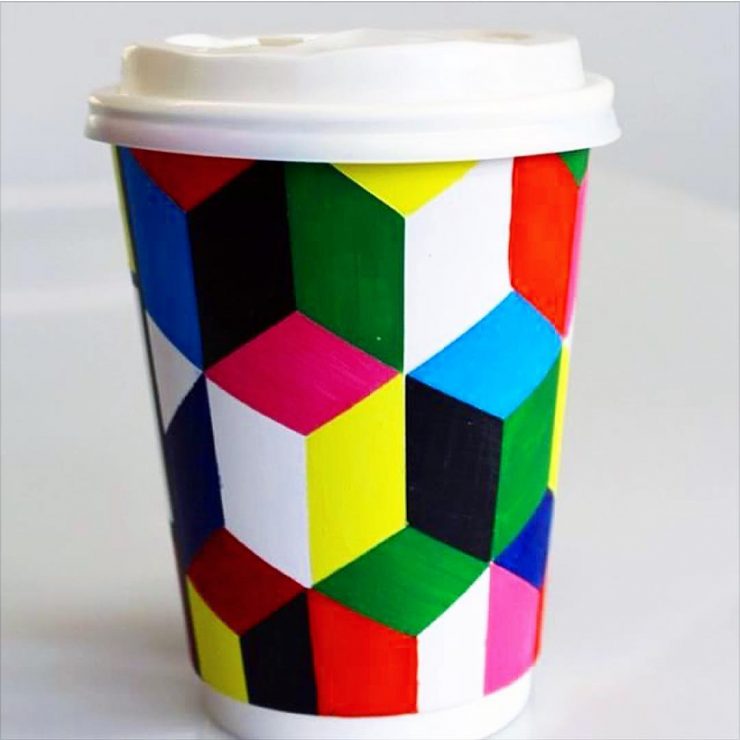
What are some of your favorite cups you’ve featured?
I like cups that have sayings on them and fun puns. In terms of design, the cup that started it all for me was Five Leaves in Brooklyn, where a tattoo artist had done their coffee-cup design. There’s another place in Brooklyn, Sweatshop, which I have done collaborations with for cup design, and they are very forward thinking about it, and give their customers something new and engaging every day. They’ve also done crowdsourcing competitions for cups.
A few more of Hargreaves’ favorite cups:
BioCup Art Series in Australia. “All their [cups] are home runs.”
Code Black, Melbourne. Its cup says: “If you have any answers we will be happy to provide full and detailed questions”.
Pineapple and Pearls, Washington D.C. “I had an idea a while ago to do something with gold leaf, and they were the first people who had done a cup that had gold on it.”
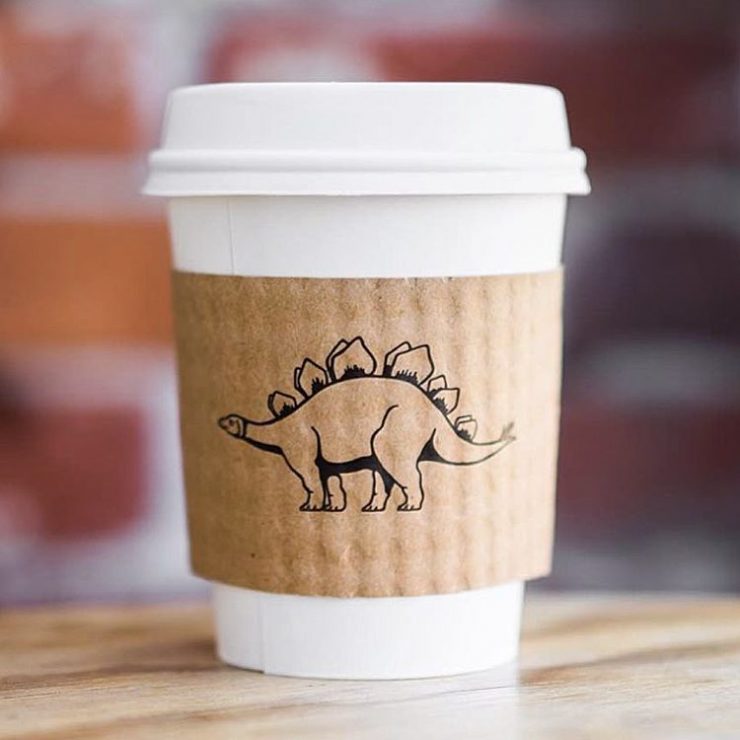
What coffee are you drinking right now?
I am a drip-coffee fan. I know that’s probably going to upset a lot of people. When I am traveling and drip coffee is not an option, I’ll have a latte, but I find that as I get older I can’t hold the lattes as well as I used to. When I’m at the studio I like just the cheap supermarket Café Bustelo, it’s kind of my go-to. To me, it’s the democratization of coffee. I like a really flashy cup but I don’t like a really flashy drink inside of it.
Favorite coffee shop?
Happy Bones, New York.
If you could drink coffee with anyone in the world, who would it be and why?
There’s a woman called Kirsty Young who hosts my favorite podcast, Desert Island Discs, on BBC Radio. I think she is the most fascinating interviewer because she is able to talk to people one on one, and she’d be an absolute gateway to knowledge, wisdom, and an amazing story.
Thanks Henry!
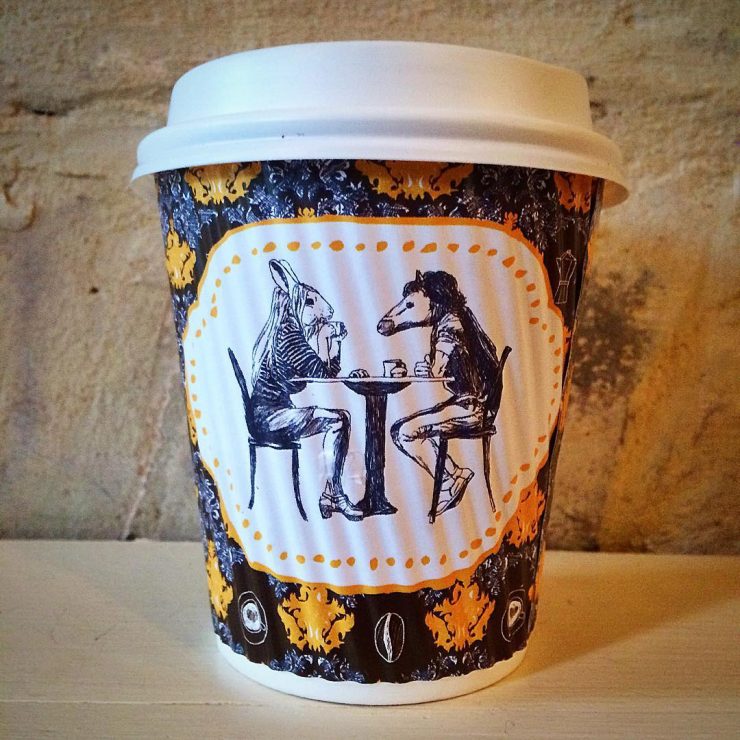
Anna Brones (@annabrones) is a Sprudge.com staff writer based in the American Pacific Northwest, the founder of Foodie Underground, and the co-author of Fika: The Art Of The Swedish Coffee Break. Read more Anna Brones on Sprudge.
Photo of Henry Hargreaves courtesy of James Bareham.
The post Coffee On Instagram: Coffee Cups Of The World appeared first on Sprudge.

